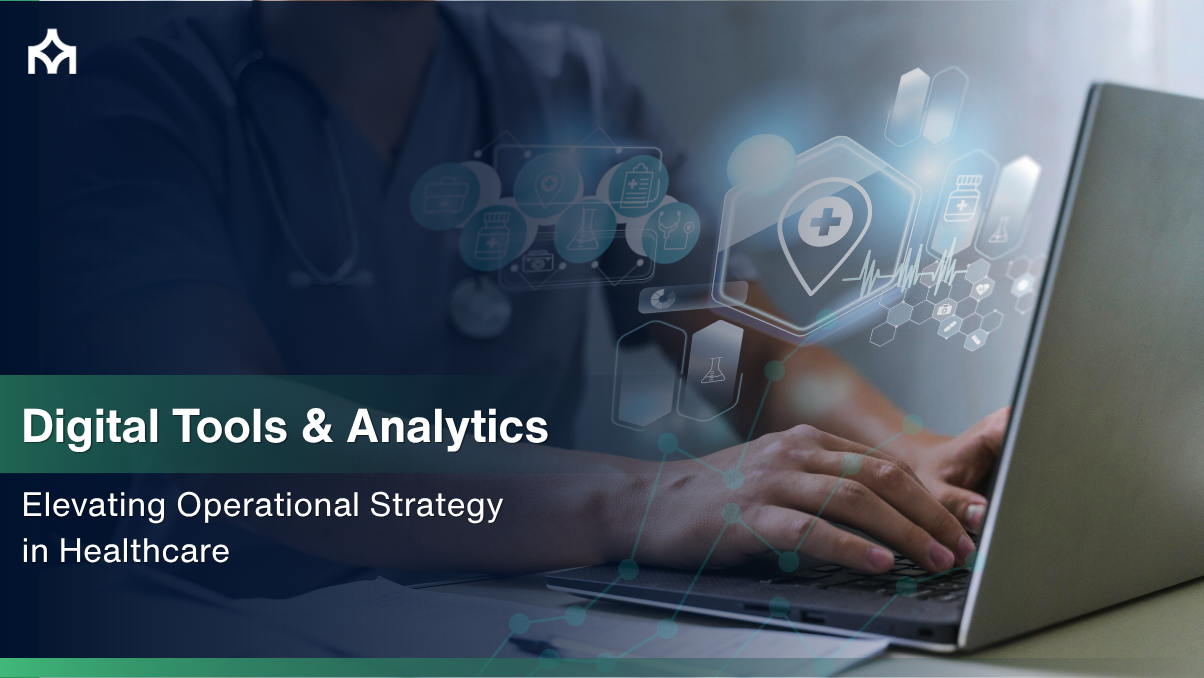Digital Tools & Analytics: Elevating Operational Strategy in Healthcare
Digital Tools & Analytics: Elevating Operational Strategy in Healthcare
Healthcare is entering a new era, one defined by data, digital innovation, and intelligent decision-making. As organizations face mounting financial pressures, regulatory complexities, and rising patient expectations, the margin for inefficiency continues to shrink. The path to operational excellence lies not in doing more, but in working smarter through the strategic use of digital tools and advanced analytics.
Across hospitals and health systems, leaders are discovering that the key to sustainability is not just financial control, but real-time operational intelligence. Digital platforms and data analytics now shape decisions that improve patient throughput, optimize staffing, and enhance both financial and clinical outcomes.
The Digital Transformation Imperative
Digital tools are fundamentally transforming how healthcare services are delivered and managed. Beyond the clinical applications of electronic health records (EHRs) and telehealth, digital transformation offers robust solutions for administrative and operational challenges.
Key areas include optimizing staff scheduling to reduce overtime and burnout, streamlining supply chain management to minimize waste and stockouts, and enhancing revenue cycle management (RCM) to ensure accurate and timely reimbursement (Becker, 2023).
The average hospital generates nearly 50 petabytes of data each year, yet more than 80% of that data remains unstructured and underutilized (McKinsey, 2023). The opportunity lies in converting this data into a unified intelligence framework that supports cross-departmental decision-making and drives measurable impact across clinical, financial, and operational domains.
Unlocking Value with Advanced Analytics
The true power lies not just in collecting data but in applying sophisticated analytical models to reveal actionable insights. Advanced analytics, including predictive modeling and machine learning (ML), can forecast patient demand, predict equipment failures, and identify process bottlenecks before they impact care delivery.
For example, utilizing ML on patient flow data can optimize bed utilization and reduce door-to-discharge times, directly enhancing the patient experience and increasing organizational capacity (Siddiqui & Al-Madi, 2022). Analytics also play a crucial role in supporting value-based care by correlating operational efficiency with quality metrics, enabling organizations to pinpoint where investments yield the highest return in patient health (Deloitte, 2023).
Hospitals that embed predictive tools into their operational planning have reported up to a 15% improvement in efficiency and a 20% reduction in avoidable delays (Becker’s Hospital Review, 2024).
Operational Strategy: From Insight to Impact
Successful transformation requires more than technology adoption, it demands alignment, governance, and culture.
Our strategic pillars include:
- Data Governance: Establishing clear protocols for data collection, quality, and security (HIMSS, 2024).
- Process Re-engineering: Aligning workflows with new digital capabilities to maximize efficiency.
- Cultural Adoption: Empowering staff through training and engagement to use tools effectively for decision-making.
Health systems that adopt advanced analytics to guide labor and financial strategies have realized up to 25% faster decision cycles and a 12% improvement in operating margins (Gartner, 2024).
Elevating Healthcare Through Digital Maturity
Digital transformation is an ongoing evolution. Healthcare leaders who invest in analytics-driven decision-making are redefining what operational excellence looks like. By transforming data into strategy, they are building systems that are not only efficient and resilient but also more responsive to patient and community needs.
In a future defined by complexity, digital intelligence will be the foundation of organizational success. The health systems that thrive will be those that treat data not as a byproduct, but as a strategic asset powering innovation, performance, and better care for every patient.
Sources: McKinsey, 2023; Becker, 2023; Becker’s Hospital Review, 2024; Deloitte, 2023; Siddiqui & Al-Madi, 2022; Gartner, 2024; HIMSS, 2024






